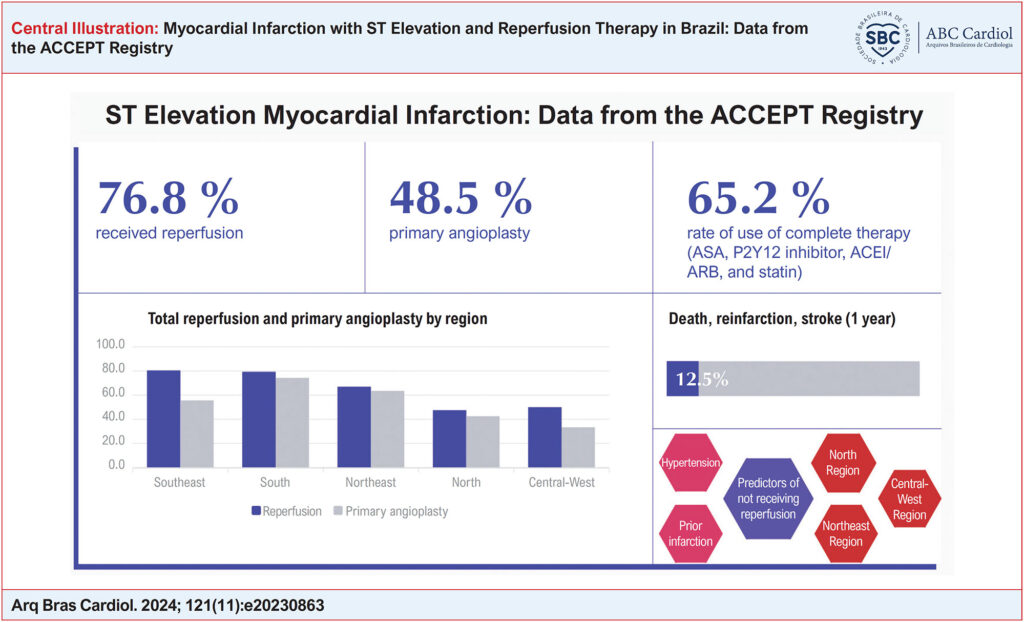Arq. Bras. Cardiol. 2024; 121(11): e20230863
Myocardial Infarction with ST Elevation and Reperfusion Therapy in Brazil: Data from the ACCEPT Registry
This Original Article is referred by the Short Editorial "The ACCEPT Study and the Management of Ischemic Myocardial Disease in Brazil: Challenges and Opportunities in a Continental Country".
ABSTRACT
Background:
There is a lack of information from Brazil regarding therapies used and outcomes in patients with acute coronary syndrome with ST elevation (STEMI).
Objectives:
To evaluate evidence-based therapies, occurrence of outcomes, reperfusion use, and predictors of not receiving reperfusion in patients with STEMI in a national multicenter registry.
Methods:
Patients with STEMI from the ACCEPT registry, with up to 12 hours of symptoms, were followed for 1 year for the occurrence of major adverse cardiovascular events. A significance level of p < 0.05 was applied for all analyses.
Results:
In the analysis of 1553 patients, the reperfusion rate was 76.8%, ranging from 47.5% in the North Region to 80.5% in the Southeast Region. The rate of major adverse cardiovascular events was 12.5% at 1 year. The prescription of evidence-based therapies at hospital admission was 65.6%. The presence of hypertension (odds ratio [OR] 1.47; 95% confidence interval [CI] 1.11 to 1.96; p < 0.01); prior acute myocardial infarction (OR 1.81; 95% CI 1.32 to 2.48; p < 0.001); and the North (OR 4.65; 95% CI 2.87 to 7.52; p < 0.001), Central-West (OR 4.02; 95% CI 1.26 to 12.7; p < 0.05), and Northeast Regions (OR 1.70; 95% CI 1.17 to 2.46; p < 0.01) were independent predictors of not receiving reperfusion therapy.
Conclusion:
In the 1-year follow-up of the ACCEPT Registry, we were able to verify a wide variation within Brazilian geographical regions regarding adherence to best care practices. The following were independent predictors of not receiving reperfusion therapy: being treated in the North, Central-West, and Northeast Regions; having systemic arterial hypertension; and prior infarction.
960

